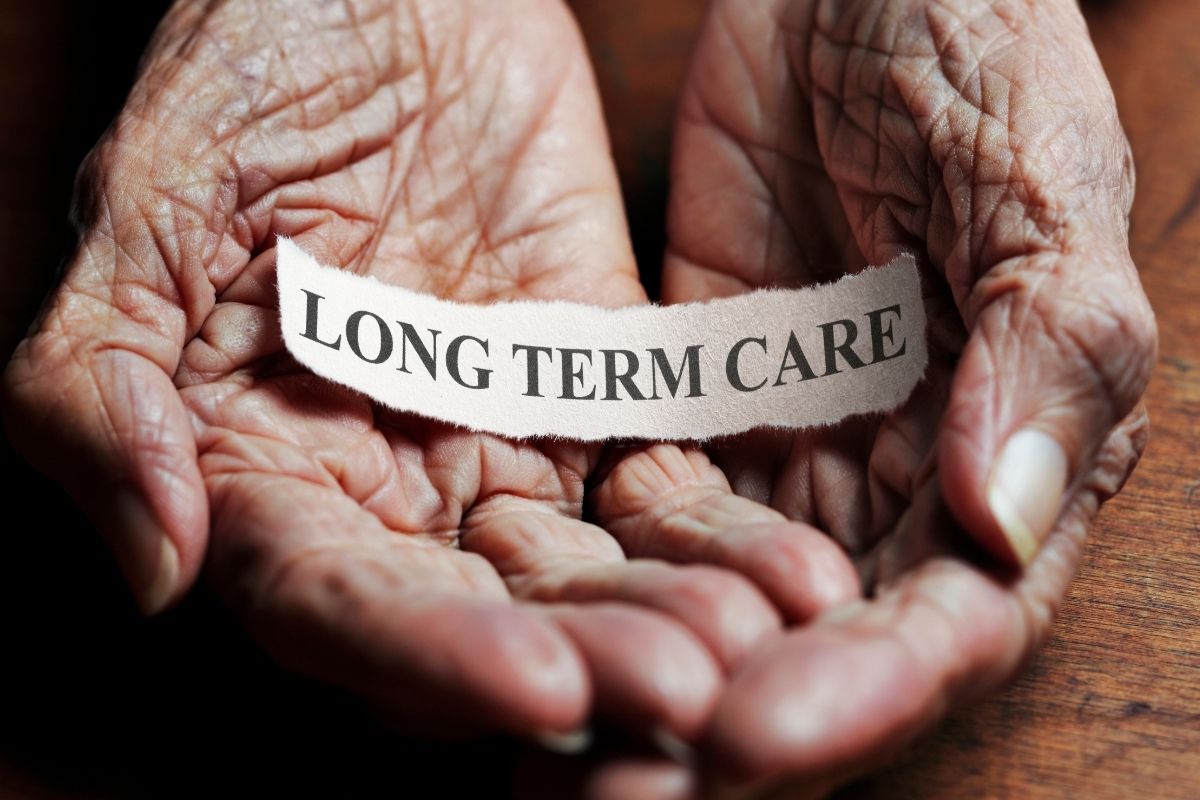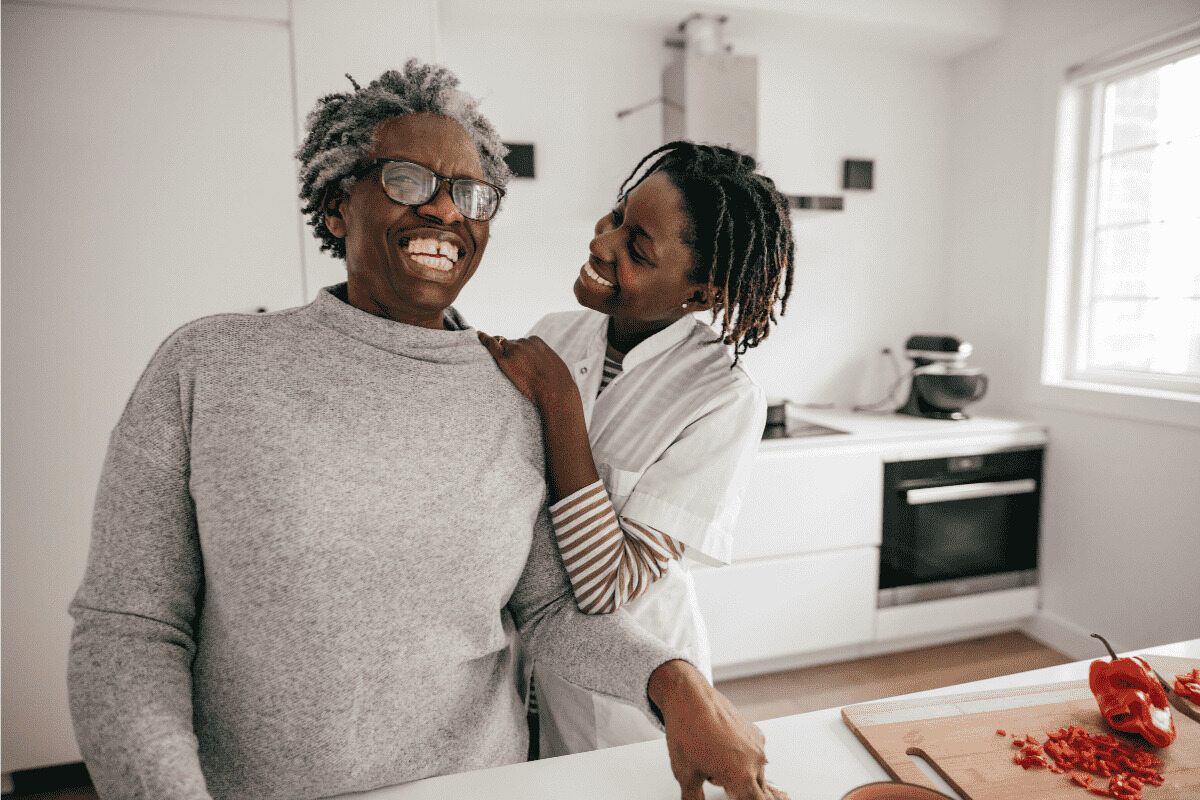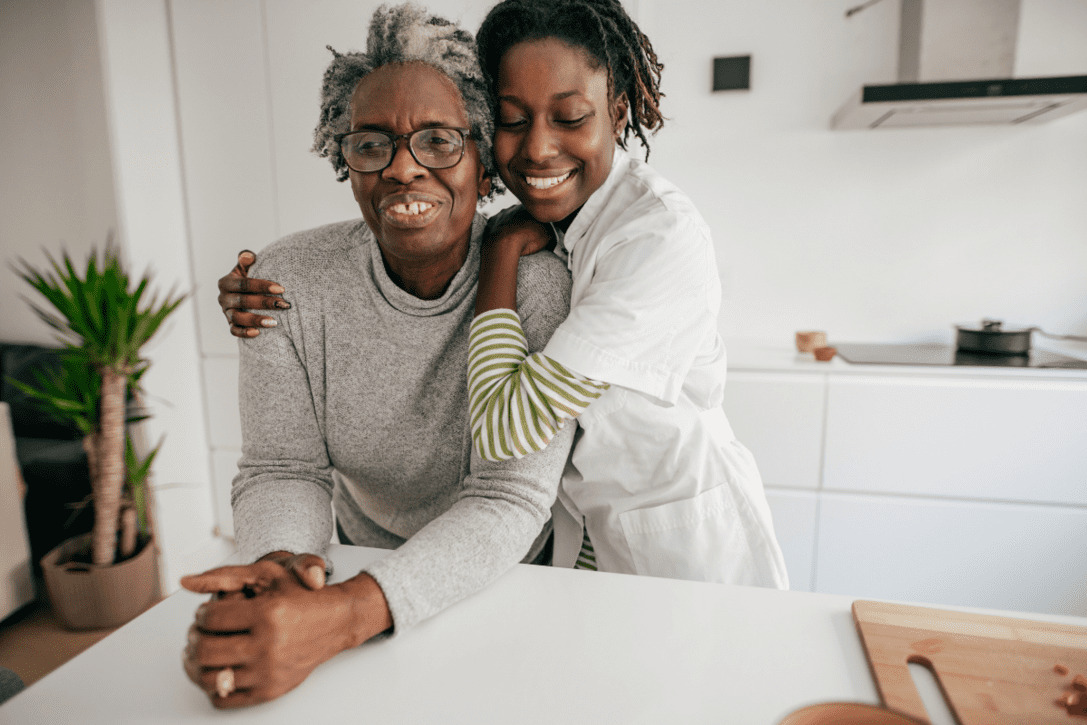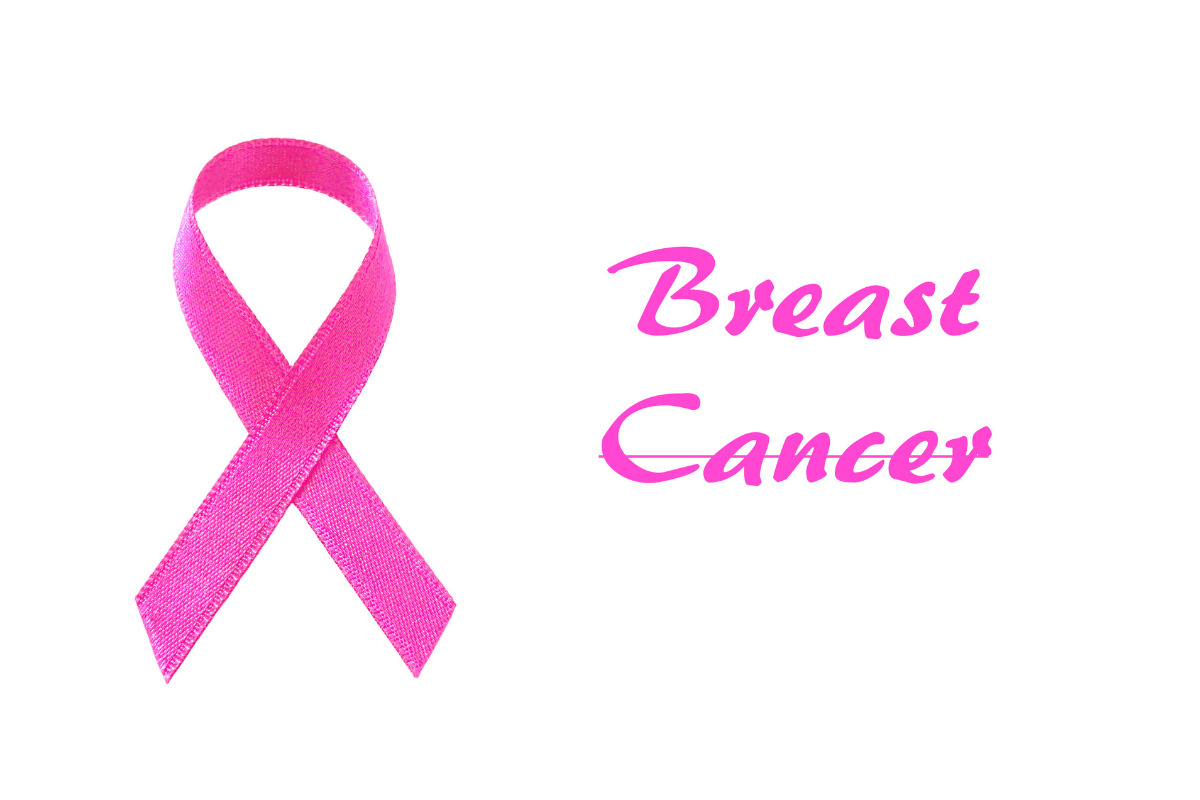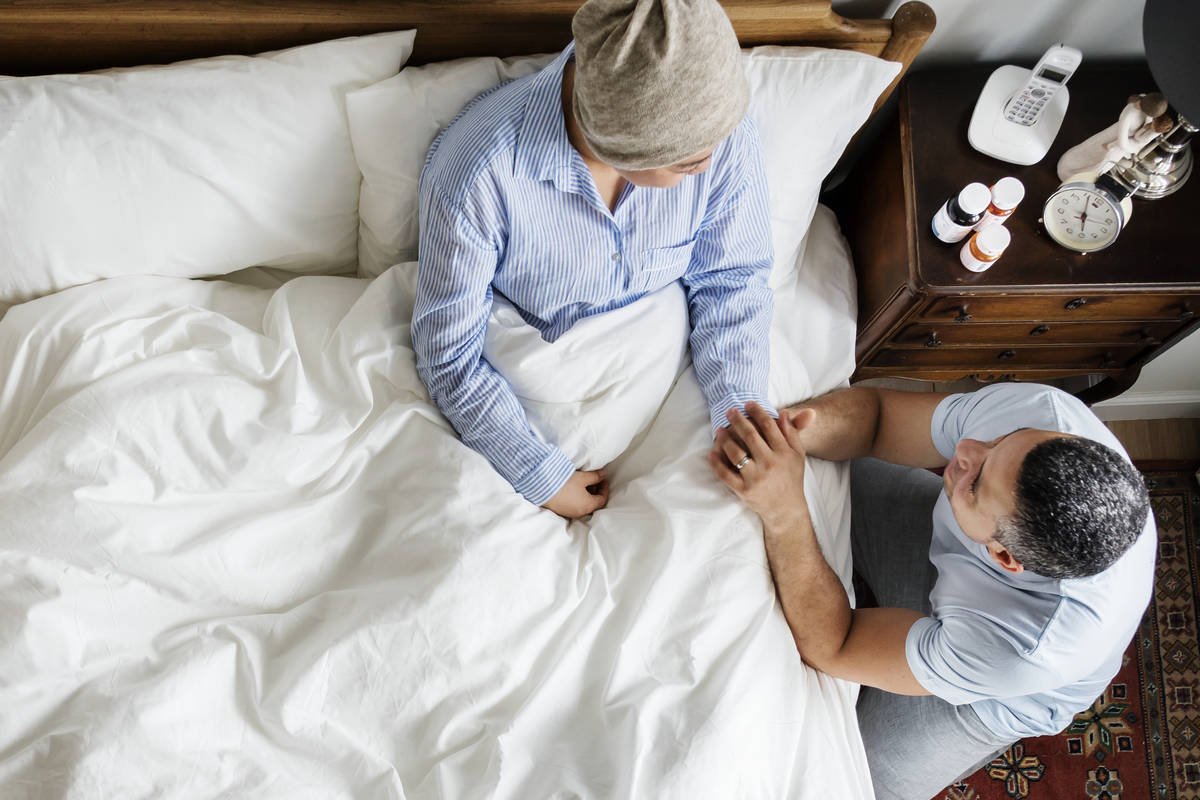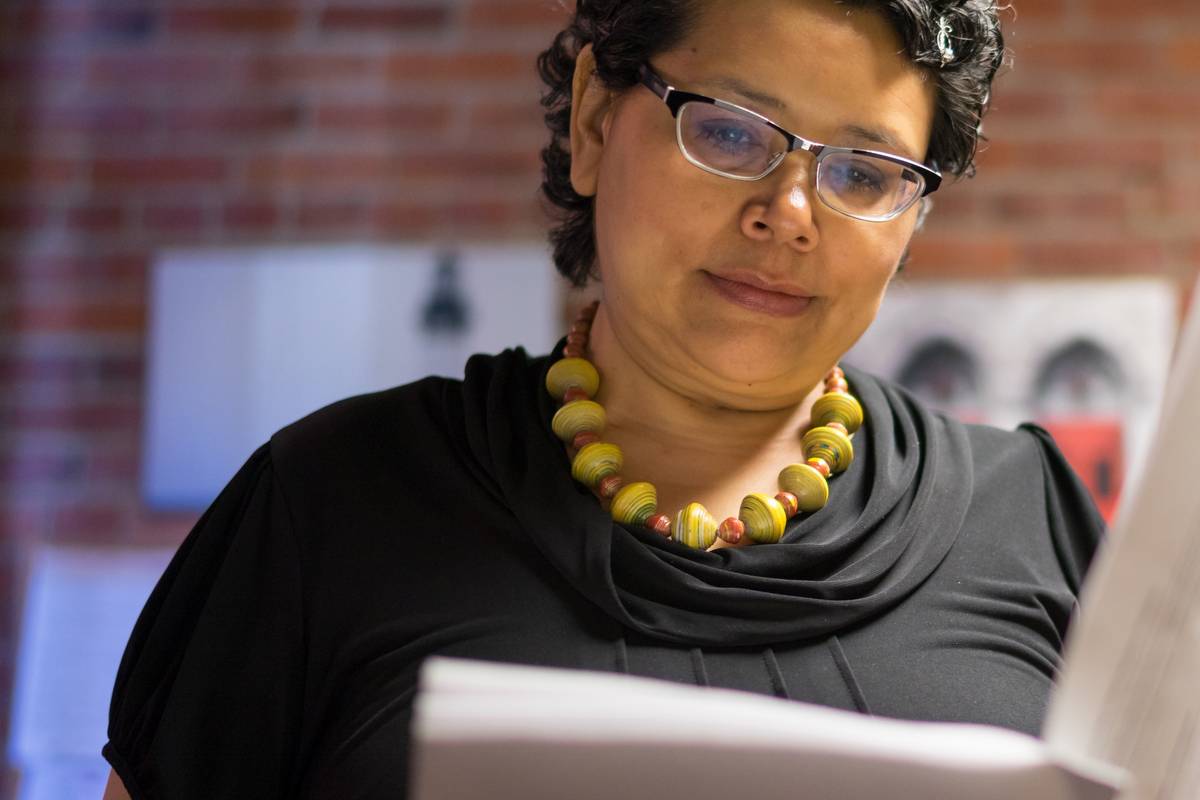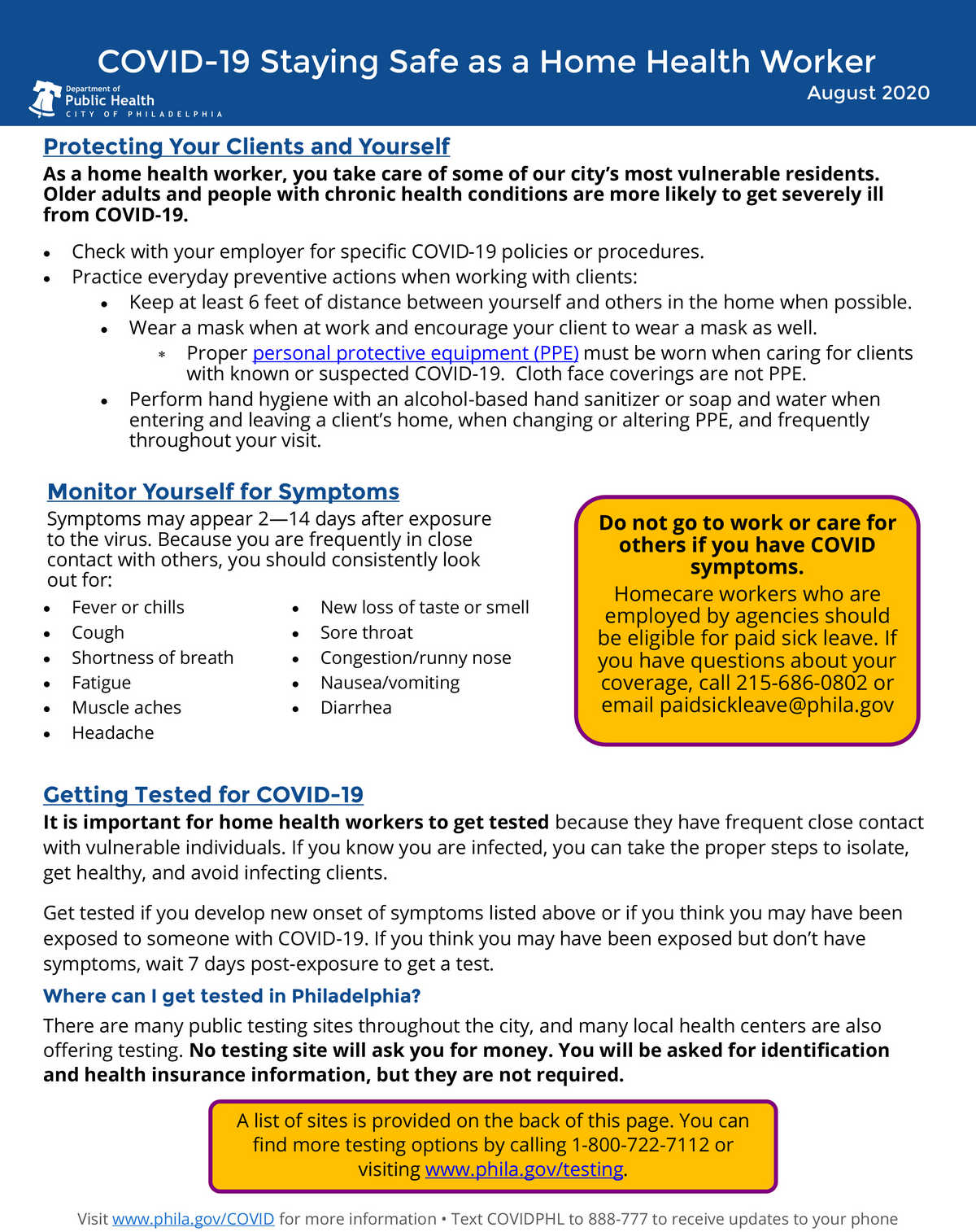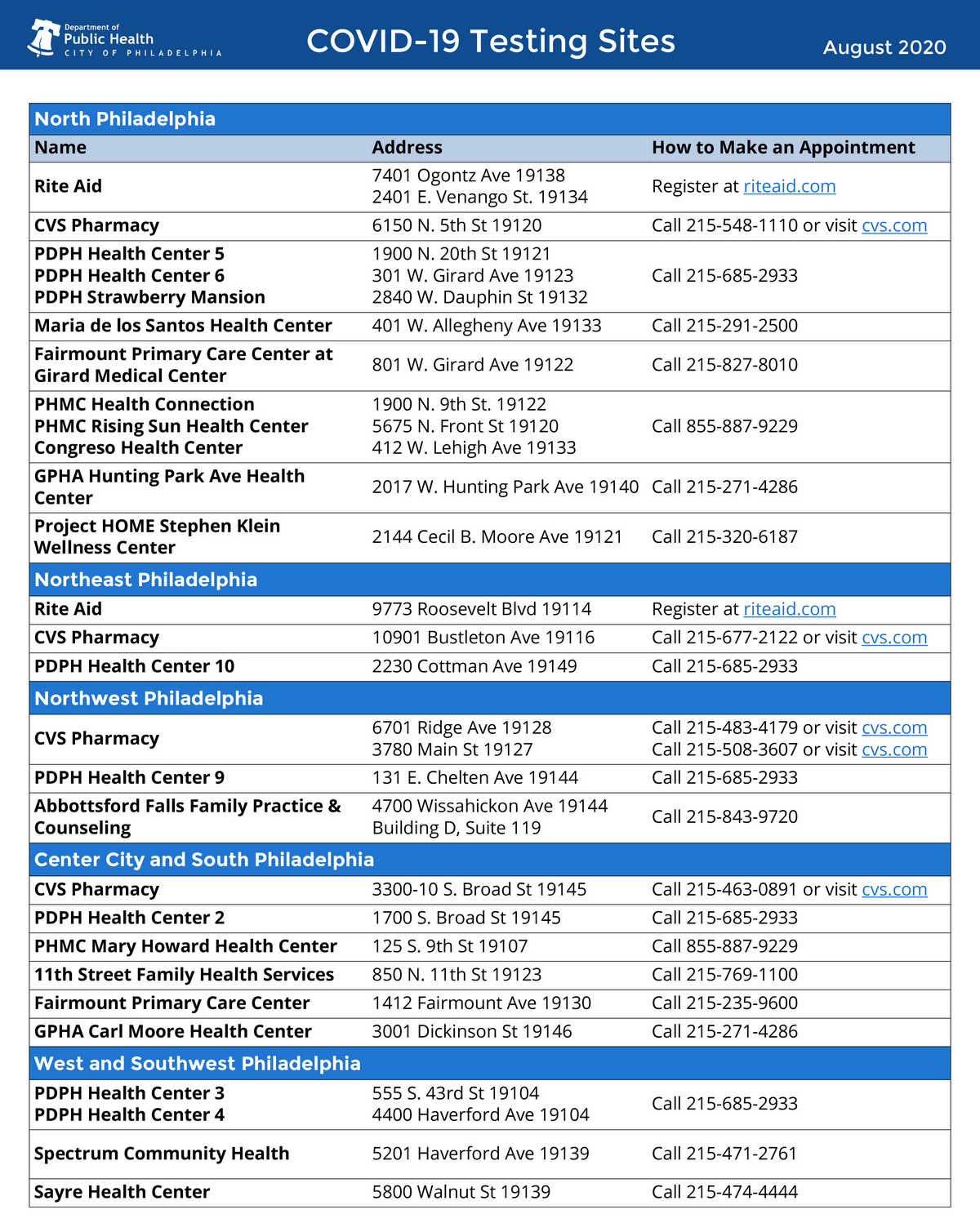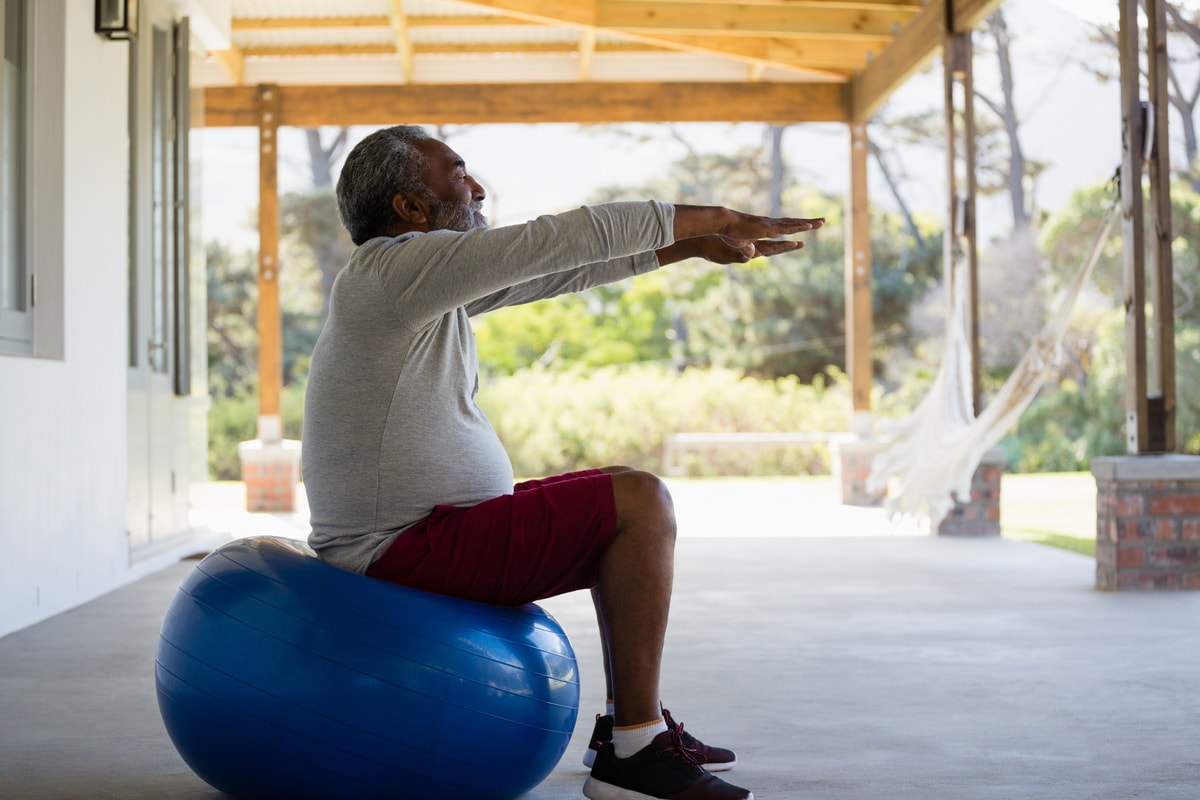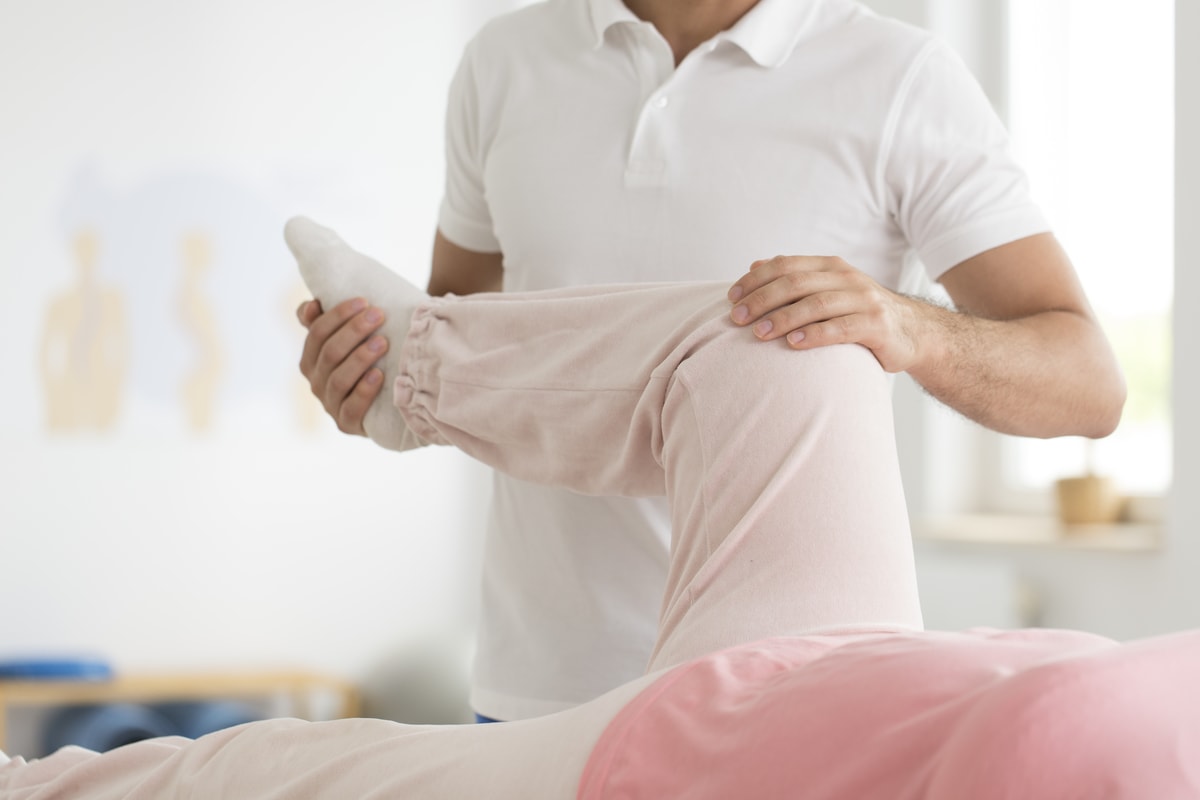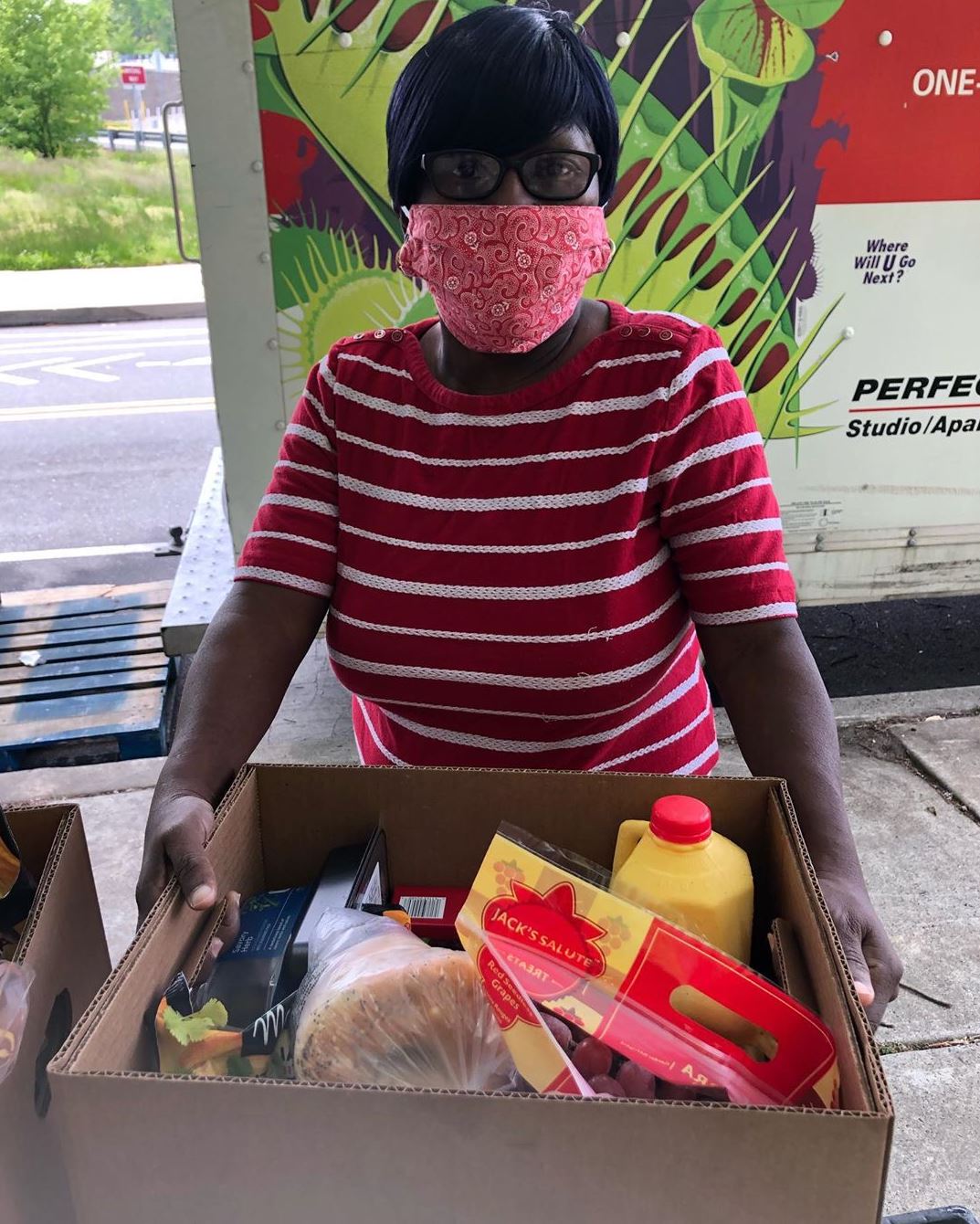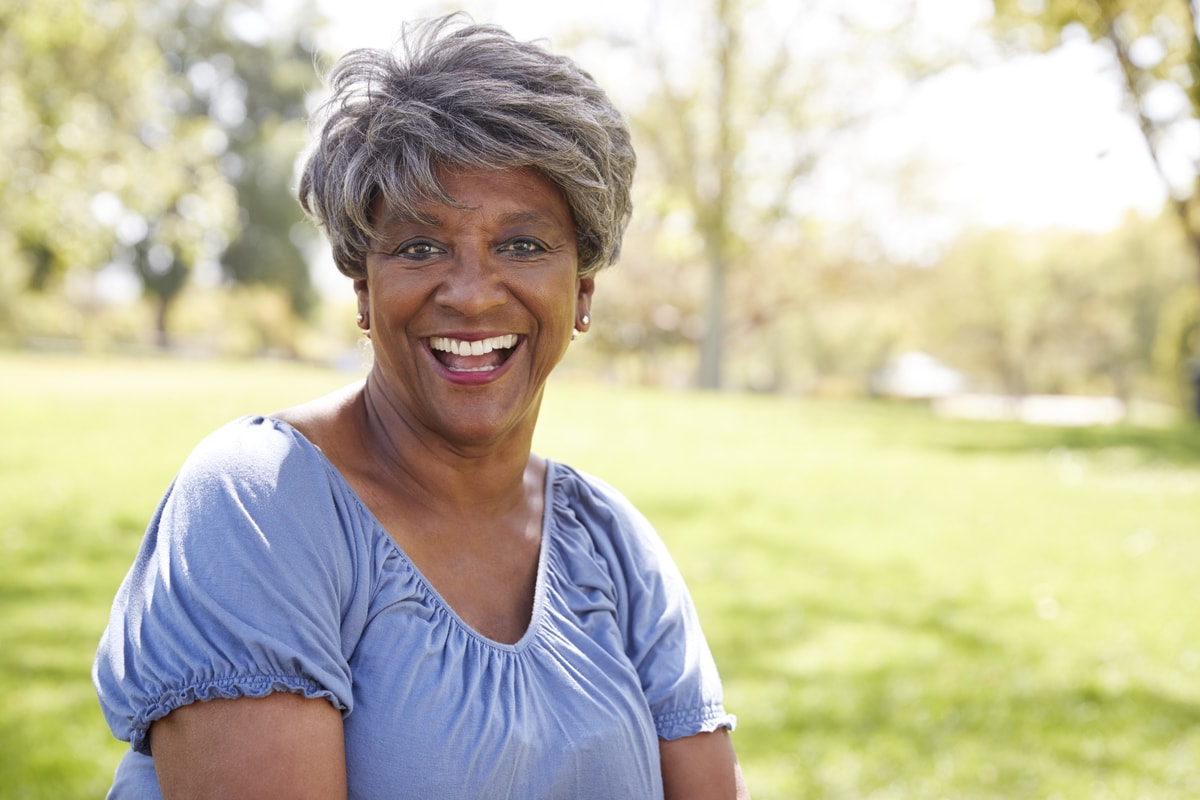Put your hands together for National Long-Term Care Awareness Month!
For seniors and caregivers alike, this is an incredibly important month. National Long-Term Care Awareness Month brings attention to the emotional hardships, the medical benefits, and the financial advantages of lasting homecare and caregiving.
In honor of the month, we’ve put together a quick guide on everything you need to know about long-term care.
What Is Long-Term Care?
Long-term care for seniors is centered around individual health and personal care. The goal of long-term care is to help with everyday tasks, enabling seniors to live their best lives stress-free and comfortably.
Long-term care is generally intended for seniors with disabilities, serious injuries, or ongoing medical conditions.
What Does a Long-Term Caregiver Do?
A home health aide providing long-term care usually helps with:
- Dressing
- Meal prep
- Hair, skin, foot, nail, and oral care
- Laundry
- Transportation
- Light housekeeping
- And more
Trained health care providers can also offer long-term medical care, including physical therapy, occupational therapy, and skilled nursing.
A caregiver providing long-term services doesn’t just go through the rote motions of routine but also creates a safe and warm environment for seniors.
How to Get Paid for Caregiving?
The majority of long-term care is done at-home. And, it is mostly done un-paid by family or friends. While providing care for a loved one is an extremely rewarding endeavor, it can also be time-consuming and emotionally draining.
If you or someone you know is providing long-term care, lighten the burden, and get paid to be a caregiver! You can get paid to do the work you’re already doing by simply signing up as a home health aide.
When you sign on to work with a premium home care agency like AmeriBest Home Care, you’ll receive more than just a job, you’ll receive a lifelong career. AmeriBest provides its caregivers with paid training, competitive pay, flexible hours, medical benefits, career encouragement, and more.
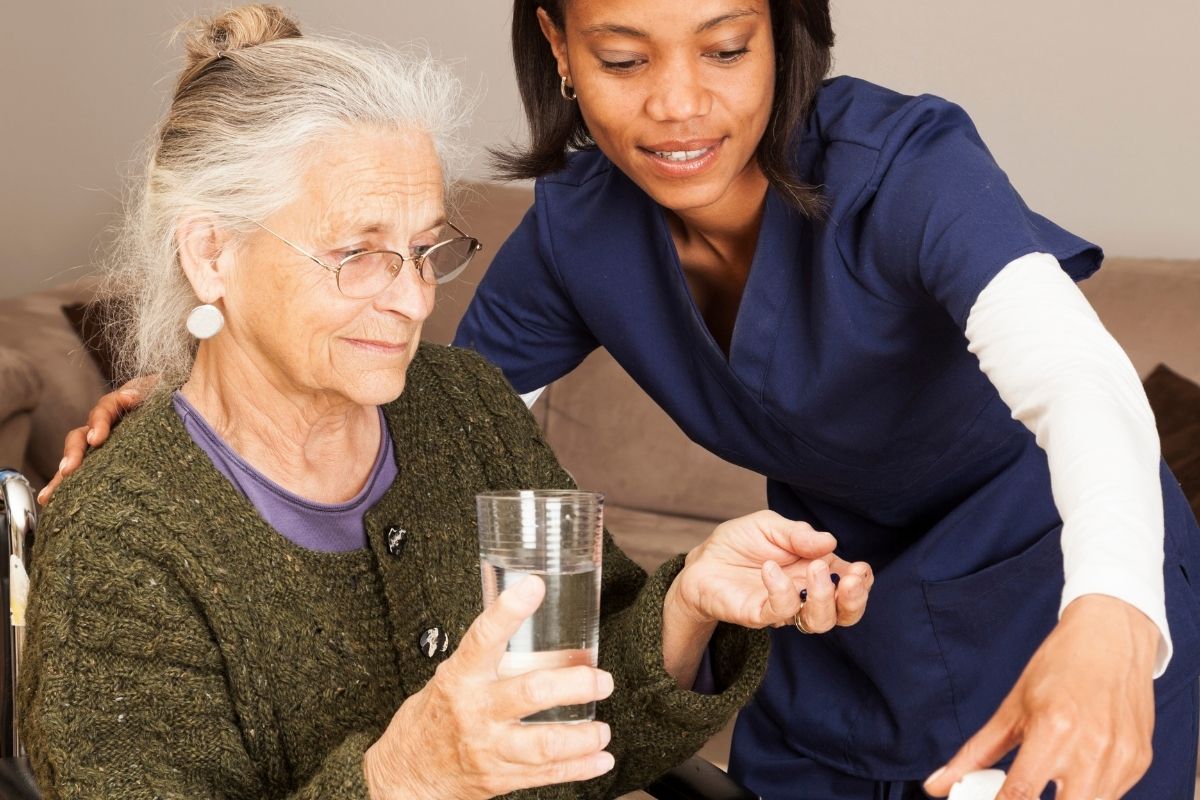
Who Can Get Paid for Caregiving in PA?
Pennsylvania has multiple programs that offer un-paid caregivers a chance to get reimbursed for their out-of-pocket expenses pertaining to their caregiving. Expenses such as food, medical supplies, health services, and more.
With these programs, many adults acting as primary caregivers can receive compensation for their work, even if they are caregiving for family members or friends.
However, if you’re looking for more than just reimbursement, working as a professional caregiver can provide you with financial security and life satisfaction.
At AmeriBest Home Care, we are committed to providing exceptional home health and personal care services to seniors and members of our community. And, when you join the AmeriBest family, you’re joining a cause. A cause to make sure no senior gets left behind. That every senior, no matter physical ability or financial status, is given a real opportunity to live their very best lives.
What could be more rewarding?
Join the AmeriBest family, and get paid to be a caregiver!
Сall today at (215) 925-3313 or 1800-HOMECARE (for PA residents).

